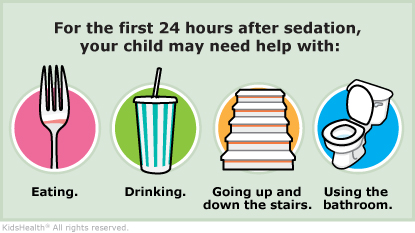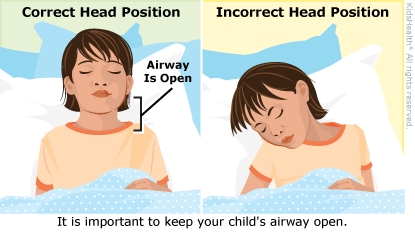Moderate sedation makes kids sleepy and relaxed and able to safely have a needed medical procedure or test without remembering it. After sedation, your child may be more tired than usual for the next 24 hours and need more help with activities. Here's how to care for your child at home until they're back to normal.




Your child:

Your child:

How long do the effects of moderate sedation last? Some sedation medicines stay in the body even after a child is completely awake. It can take up to 24 hours for some medicines to completely leave the body. Until they do, kids can be nauseated and could be sleepy and a little off balance.